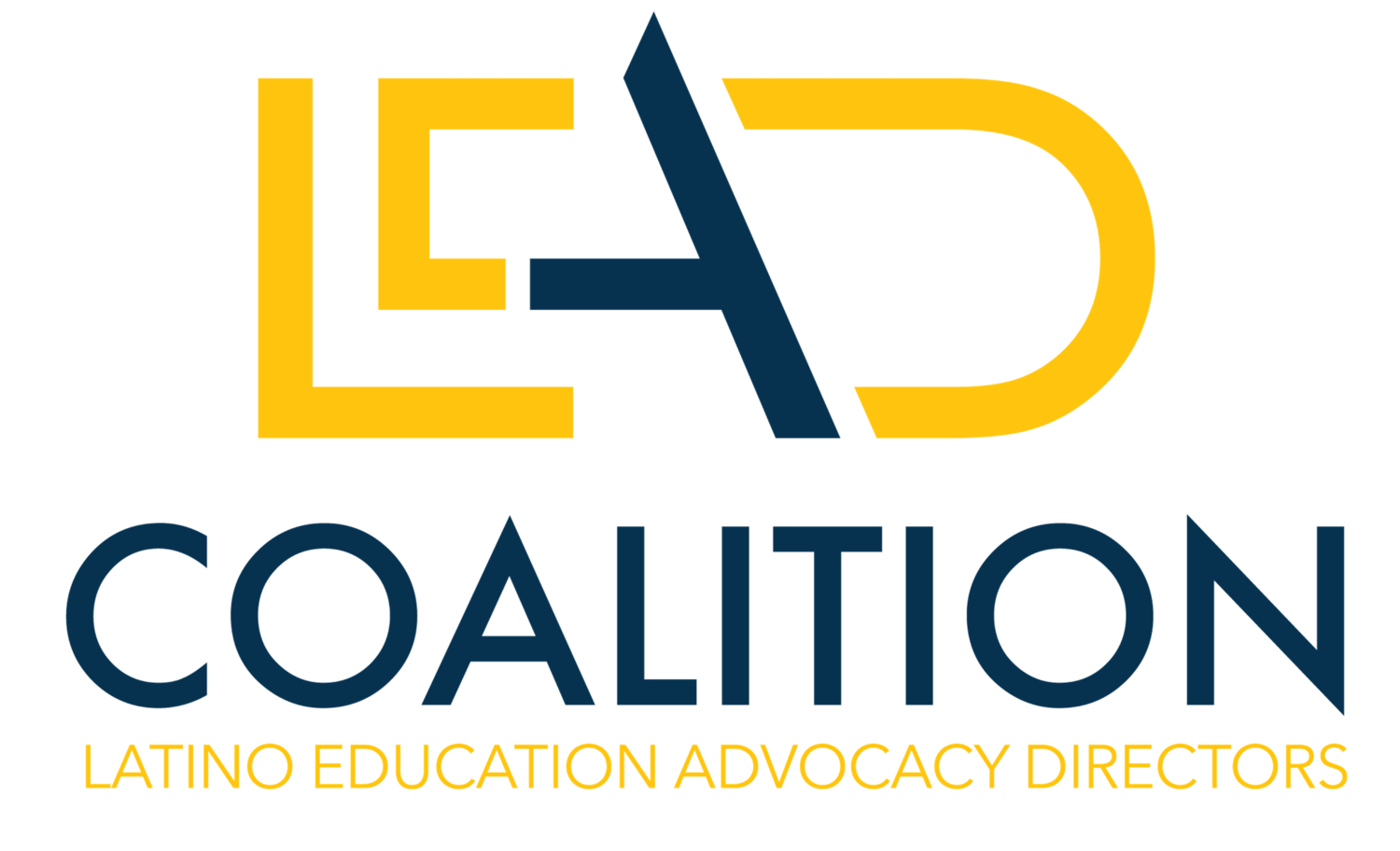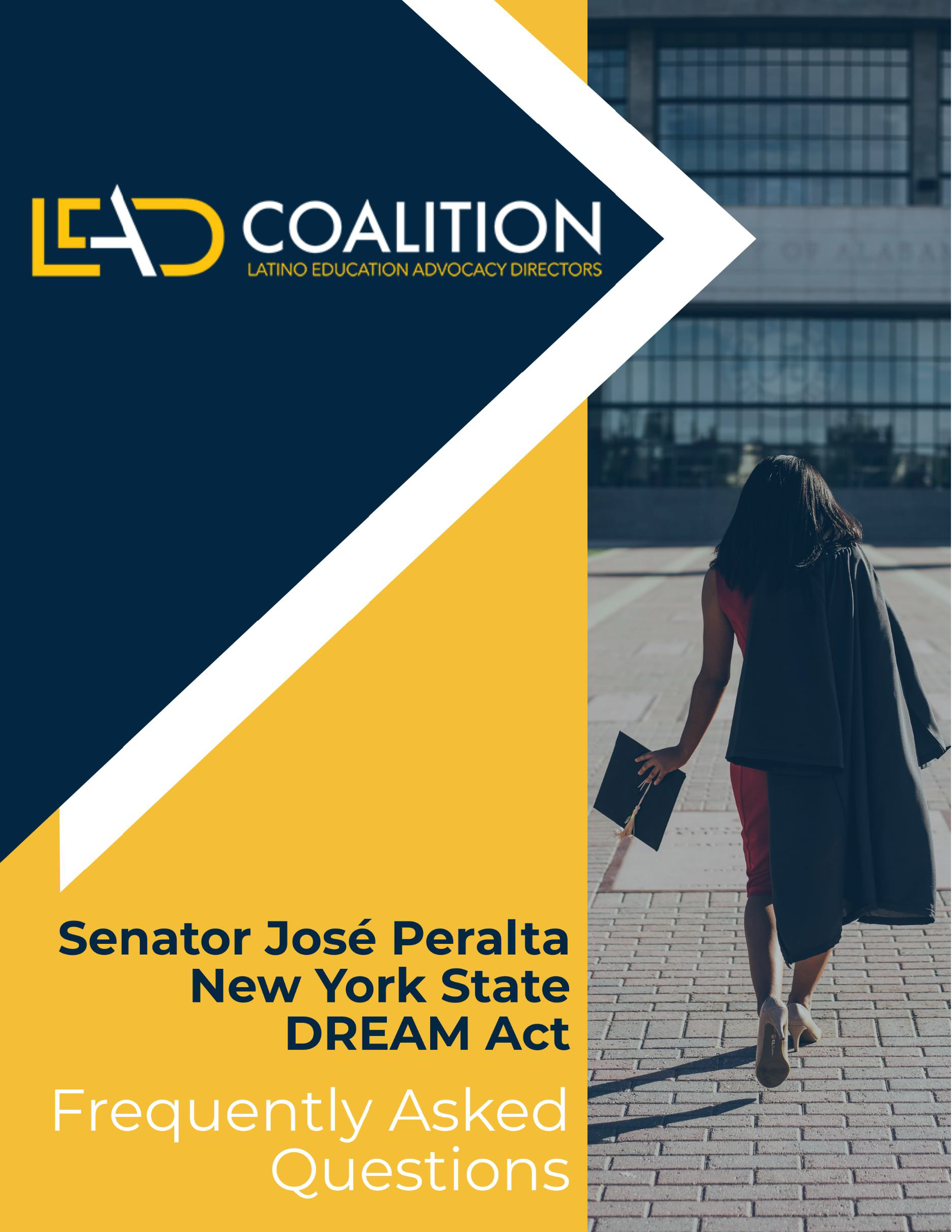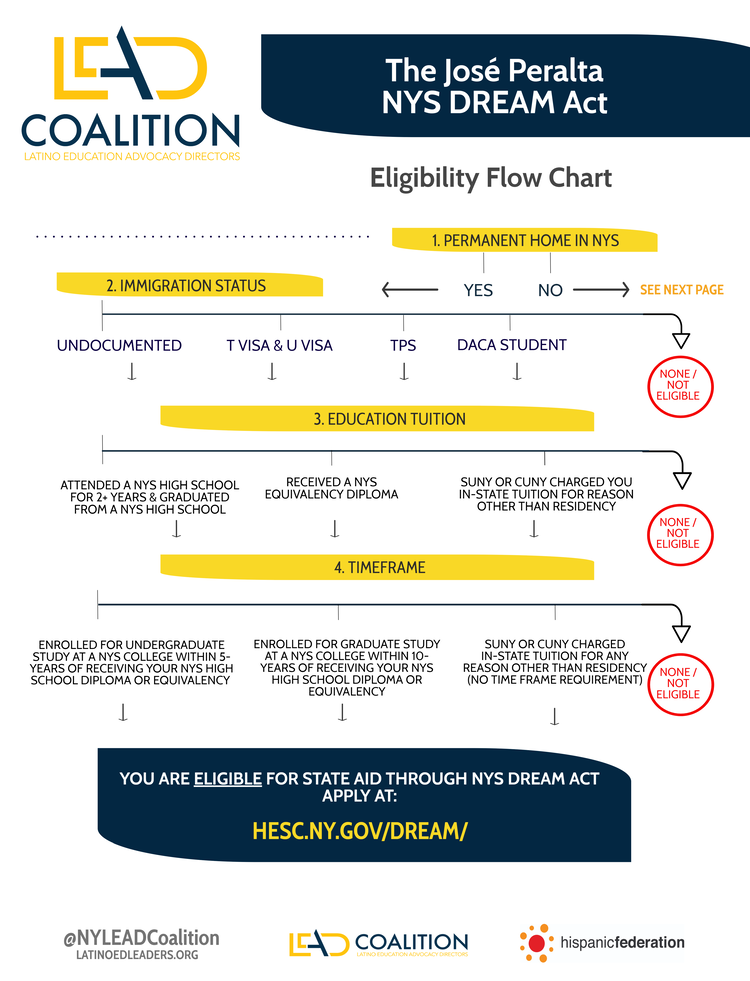The coalition is unified in support of a reform agenda that will enhance New York City and New York State’s P-16 public education system, creating a strong college and career access and success pipeline to improve the outcomes of Latino students.
This year we are focusing on budget and legislative asks meant to: (1) increase high school graduation and retention; (2) increase Latinx college and career readiness; and (3) increase college access, graduation and retention.
P-12 EDUCATION
Budget Recommendations
Fully Fund the Original Foundation Aid Formula—$3.8 billion
NYS’s highest Court found that the State has unconstitutionally underfunded schools through the annual budget by failing to “align funding with need” to determine the “actual cost” of providing a “sound and basic education” to all students as promised in the State constitution.
Fund the Commission for the Educational Advancement of Multilingual Learners—$438,000
NYS must fund the operation of the commission for the educational advancement of multilingual learners. The commission is tasked with writing a best practices and legislative recommendations report, which will emphasize the importance of policies and funding for the educational achievement of multilingual learning students to the legislature and the governor. This commission is essential to close the achievement gap between multilingual learners and their English proficient peers, as well as improve the graduation rates of multilingual learners.
Increase NYSED Funding to Support Multilingual Learners (MLLs) formerly English Language Learners
MLLs significantly lag behind their non-MLL peers when it comes to academic achievement and graduation rates. We firmly support the Board of Regents and NYSED budget asks to support programs for these students.
Increase districts’ capacity to serve MLLs, enhance curriculum, and increase instructional support—$15 million
Increase support services by expanding staff at NYSED’s RBERN and statewide support centers—$1.6 million
Create a new English Language Proficiency assessment for MLLs with severe cognitive disabilities—$1 million
Enhance communication with multilingual parents by providing document translation services—$1.5 million
Legislative Recommendations—some include fiscal implications
Employ Mental Health Professionals in All K-12 Schools—S4217/5373 (Jackson/Ortiz)
This bill requires that all elementary, intermediate, middle, junior and senior high schools throughout New York State have a full-time licensed social worker and a full-time licensed psychologist on staff to meet the needs of their students.
Expand Access to Advanced Coursework to Improve Educational Equity—S7600/A09697 (Liu/People-Stokes)
This bill requires schools to provide notice to parents on the availability of advanced courses, and other early college and career experiences; and requires educational agencies to adopt a policy for automatic enrollment in advanced courses where a student has demonstrated readiness, pursuant to measures determined by the Commissioner of Education. This bill will also allow a parent of a student to opt-out of automatic enrollment.
Create Statewide Careers Exploration Class—S4509/A9946 (Parker/Bichotte)—$2 million
This Careers Exploration Class integrates academic and vocational education, links secondary and post-secondary education, provides learning activities and mentoring in the workplace, and furnishes students with school-based and work-based learning. Two main outcomes at the conclusion of these classes (1) the students will have acquired basic knowledge to search, apply and secure an internship and (2) the students will be able to set higher academic and career goals. The career explorations classes part one will include but not be limited to: Career workshops, resume and cover letter writing, thank you letters, mock interviews, and workplace etiquette. Career explorations part two: will focus on SAT prep, college application and acceptance process, and financial aid. For outside internships every student must participate in either one summer internship or at least 5 job shadow days.
School Climate, Codes of Conduct & Disciplinary Action of Code Violations—S767B/A1981B (Montgomery/Nolan)
This bill requires that school codes of conduct must: (1) set clear and specific expectations that hold students accountable, (2) define violations in the code of conduct, (3) use graduated and proportionate discipline practices,(4) define the roles and responsibilities of school personnel and law enforcement, (5) ensure annual staff training, and (6) include restorative approaches to proactively build a school community based upon cooperation, mutual understanding, trust and respect. In addition, the code of conduct must establish procedures by which violations are reported to the appropriate school personnel, the facts are investigated and determined, and interventions and discipline measures are decided upon and implemented.
Increase Parent Information in Home Languages—S2939/A2179 (Serrano/Rozic)—$5 million
Establishes the Educational Equity Act which provides language assistance to parent/guardians who have children enrolled in public school and who do not speak English. This bill would require school districts to:
Create an annual language assistance plan to assess language needs within the district and determine the primary languages of parents based on population. (Top 2 languages of 2% of population or top 8 languages if in NYC).
Provide translations of certain documents sent to parents in regard to a child's education. Including but not limited to: report cards and permission slips; documents pertaining to a student's health, safety, 'placement, or discipline.
Provide a mechanism for schoolteachers and staff to fax documents and receive translated versions of them within a reasonable time. Provide a notice to parents and guardians of their rights to translation services. Sign in visible area to parents informing them of covered languages in schools.
HIGHER EDUCATION
Budget Recommendations
Continued Funding for the Senator José Peralta NYS Dream Act and Implementation
NYS must secure NYS DREAM Act funding to ensure undocumented immigrants continue to have opportunities and access to higher education. This is the same increase to state financial aid programs as last year. —$27 million
During the NYS DREAM Act implementation, HESC seemed to be stretched to its full capacity and needs additional financial support to properly put the law into action. HESC needs funding to create a statewide marketing and education campaign, increase community outreach, and develop training materials/sessions for counselors. —$1 million
As with the Excelsior Scholarship, SUNY and CUNY must also participate in marketing and recruitment efforts to assist new students in understanding the NYS DREAM Act Application Process and Eligibility Criteria. They should distribute information about the NYS DREAM Act at all student fairs and at their Financial aid workshops. SUNY and CUNY should receive $250,000 each to help with these efforts. —$500,00
Increase Opportunity Program Funding
Opportunity Program Funding has been proven to increase retention and graduation rates, especially for first generation college bound students. Many of these students are low-income students of color that need additional academic and financial support and services to graduate college.
FOUR YEAR UNIVERSITY PROGRAMS
Higher Educational Opportunity Program (HEOP)—$41.4 million
Liberty Partnership Program—$18.4 million
Science and Technology Entry Program (STEP)—$18.4 million
Collegiate Science and Technology Entry Program (CSTEP)—$13.9 million
CUNY Accelerated Study in Associate Programs (ASAP)—$2.5 million
COMMUNITY COLLEGE PROGRAMS
Search for Education, Elevation, and Knowledge (SEEK)—$32.8 million
College Discovery Opportunity Program—$1.6 million
Legislative Recommendations—some include fiscal implications
Establish the SUNY Office for Diversity and Educational Equity—S4922/A9822 (Parker/Rozic)—$500,000
This bill establishes the Office for Diversity and Educational Equity within the SUNY administration, that will annually submit a report to the Governor and Legislature outlining current diversity efforts as they relate to faculty hiring and student enrollment. The report must break down all information by campus, gender, and ethnicity and include: (1) Minority enrollment for each campus, (2) minority withdrawals and dismissals per each campus, (3) size of minority freshman class, (4) size of minority graduating classes in four, five, and six years per campus, (5) number of faculty positions filled by each campus, and (6) the number of minority faculty hired by each campus, their pay scale and title
Continue and Prioritize the Smart Scholars and P-TECH—S6537/A7501 (Montgomery/Benendetto)—$625,000
Smart Scholars Early College High School Program and P-TECH programs further prepare students for college and postsecondary success. The Commissioner of NYSED provides grants to continue funding these educational opportunities. This bill would require the Commissioner to prioritize partnerships that demonstrate the willingness and capacity to serve students who have been identified as economically disadvantaged and/or academically at-risk for not successfully completing high school or not enrolling in or succeeding in college.








